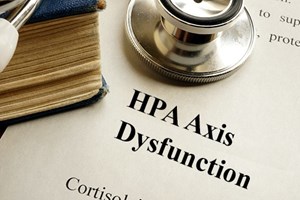The hypothalamus is directly innervated by neuronal systems that produce neurotransmitters, such as serotonin (5-HT), dopamine and norepinephrine (NE), that are involved in mood regulation and play various other roles in cognitive health. During the acute stress crisis, the mesolimbic dopaminergic reward system is stimulated to help maintain morale. However, during chronic stress or depression, the reward system is down-regulated by stress mediators, resulting in anhedonia.…
Tags: HPA Axis, Hormone Balance, Stress, Neurotransmitters, Depression









